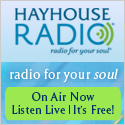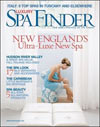Reiki Past, Present, and Future: A Simulpost
This week's edition of The Reiki Digest is a simulpost with The Reiki Show from the International House of Reiki. While not exactly simultaneous, The Reiki Show and The Reiki Digest are addressing the same subject at the same time: Reiki Past, Present, and Future.
On this week's Reiki Show podcast, regular hosts Bronwen and Frans Stiene are the guests, while yours truly fills in as guest host. It's a little longer than a typical Reiki Show, but we did have a lot of ground to cover.
Rather than duplicating that discussion here, we're augmenting it with a few more words on one aspect: the future of Reiki. The following is not reporting: it's speculation. We hope you'll find it enjoyable reading in any case.
***begin speculation***
Reiki, 2012: Scenario A
NEW YORK, August 30, 2012 -- The U.S. National Health Service announced today that Reiki treatments and training are now covered under the universal health insurance program. The United States was the last country on earth to provide insurance coverage for Reiki, a powerful and inexpensive healing and stress-reduction method developed in early 20th-Century Japan.
"That's poppycock and balderdash," said the proprietor of Quackwatch.com, who says that about everything short of surgery and prescription drugs.
More than 20 studies published since 2010 in several countries have shown that even though we don't quite understand how it works, we know that Reiki can be helpful to those dealing with everything from the challenges of everyday life to the most serious health problems. While Reiki is not a substitute for medical care, it can be a valuable part of a holistic health care plan. Other studies have shown Reiki to be effective in preventing health problems as well, possibly because it is such an effective stress reducer.
Reiki can be learned in a weekend at the basic level, while further training is required for professional practice. As a personal practice, it has become nearly as popular as yoga and qigong worldwide.
In a professional Reiki session, the recipient typically lies fully clothed on a table, mat, or hospital bed, while the practitioner lightly places her or his hands on or near various places on the recipient's body. If conscious, the recipient often enters a sleeplike state for the duration of the session. Healing can take place on a physical, mental, spiritual or emotional level, and results are so individual they have been difficult to measure by conventional scientific means.
Reiki was developed in the 1920s by Mikao Usui, a Japanese lay Buddhist monk. It is practiced by people of all faiths, or of no faith, in every country of the world. It is not dependent on belief on the part of either practitioner or recipient, and is not a religious practice. It has been practiced in hospitals and other health-care environments for decades, but it was only in the past five years that its use became a standard part of comprehensive patient care.
"We believe that paying for Reiki will be the best bargain this country ever got, because keeping people healthy is much less expensive, any way you measure it, than fixing them once they're sick," said a government accountant. "Reiki not only helps keep people healthy, it helps them recover faster and at less expense when they do get sick or injured."
Reiki, 2012: Scenario B
NEW YORK, August 30, 2012 -- The U.S. Department of Homeland Stabilization today announced that the controversial practice of Reiki has now been outlawed, making the United States one of a growing number of nations to ban the much-disputed quasi-religious practice some believe can help in healing, and others dismiss as new-age nonsense.
Reiki practitioners themselves have never been able to agree on even the most basic facts about their modality. Some say it came from ancient Tibet, others say it is from the lost continent of Atlantis and still others believe it was developed in the early 20th Century by Mikao Usui, a Japanese lay Buddhist monk. Some of the latter group believe Usui was a doctor, but there is no evidence that he was or that he even claimed to have any medical training.
Some Reiki practitioners insist that Reiki is not a religion, but others claim that Reiki is guided by ghosts, angels, fairies, and/or space aliens, which has provoked some religious organizations to denounce it as a competing religion.
One government official said research into Reiki might have continued for at least a few more years if practitioners themselves had reached enough of a consensus to at least give the practice a clear definition. "Some of them say you have to use crystals, others say you have to use drums, and still others claim that the energy cannot flow if the practitioner is wearing clothing of a certain color. Then there were those people offering Reiki over the Internet. We got terribly confused, and we expect all that makes the average consumer a bit dizzy, too," the unnamed official said. "Since our job is to protect the public, we've decided not to take a chance on Reiki, at least until its proponents get their act together enough to decide what it is and what it isn't."
Reiki, 2012: Scenario C
NEW YORK, August 30, 2012 -- Whatever happened to ...
High Fructose Corn Syrup -- This ingredient was banned in 2009 worldwide after it was shown to be a factor in the global obesity epidemic.
Tibet -- Didn't that used to be a country?
New Orleans -- Didn't that used to be a city? Hey, at least we still have the jazz it left behind.
Lindsay Lohan -- Does anybody have any idea who this is, or was, or why anyone should care? The name shows up in old news reports but we can't tell why -- maybe this is one of those "famous for being famous" characters?
The "Hold" Button -- Before telephone equipment was improved, you pushed this red button down to put a call on "hold," and it stayed in place, blinking, until you pushed it again to take the call off "hold." Primitive, but effective.
Betamax -- This video tape format lost out to rival VHS, whatever that stands for. Video tape is an antiquated form of recording.
The Studebaker -- These compact cars were years before their time, which may explain why the company went under and there are none around today.
Reiki -- Wasn't this some sort of natural healing practice where people got their chakras fluffed up with feathers or something? Nobody could agree on what it was even in its heyday, but it has indisputably gone the way of Betamax and Studebakers now.
***end of speculation***
Which of those scenarios do you prefer? And which do you think is most likely? If you'd like, send us a speculative scenario of your own about where Reiki might be five or more years from now. The address is editor@thereikidigest.com. Or if you prefer, you can join in the discussion by posting a comment to this post on our web site.
To put this speculation in context, be sure to listen to the other component of this simulpost on The Reiki Show podcast.
There are still a few spaces left in the Shinpiden (Master/Teacher level) class with Frans Stiene in New York City October 19, 20, and 21, and there may also be spaces available in upcoming Shinpiden classes in Holland, France, and England.
Rather than mixing real news with fanciful speculation, we'll save the Reiki Roundup for next week. This week's Celeb-Reiki is the aforementioned Lindsay Lohan, only because she's mentioned in one of our speculative scenarios.
































1 Comments:
Just to be clear: All opinions or speculations expressed in this post are those of the author, Janet Dagley Dagley, using the word "we" in the editorial sense.
Post a Comment
<< Home